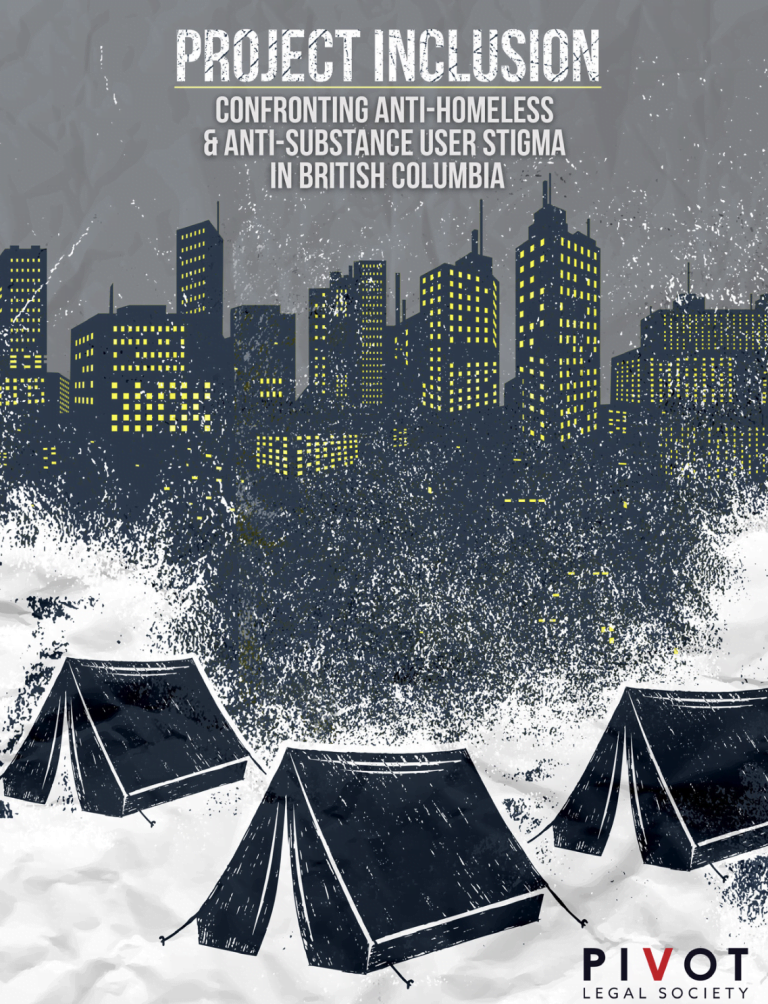14 search results
for
Homeless & housing insecure people
The impacts of police and policing
Recommendation 1: The Ministry of Public Safety and Solicitor General and the Attorney General, working in full partnership with historically marginalized communities and communities with high levels of police interactions, must develop a set of guiding values and principles for policing in British Columbia that are grounded in human rights.-
Category and theme:
Groups affected:
Location of recommendation:
The impacts of police and policing
The Attorney General must take immediate action to increase access to justice for people who believe they have been the victims of excessive force, discrimination, or harassment by police by:
Recommendation 3: Amending the Police Act to expand the mandate of the Office of the Police Complaint Commissioner (OPCC) in order to:- ensure that all police officers and forces operating in BC fall under the mandate of the OPCC;
- ensure that civilian investigators and civilian staff members are responsible for the entirety of the complaint resolution process; and
- allow the OPCC to audit police complaints each year, particularly where they involve discrimination based on race, gender, poverty, or health status, and publicly report on areas of concern for further investigation or reform.
-
Category and theme:
Audience:
Groups affected:
Location of recommendation:
The impacts of police and policing
The Director of Police Services must develop the following Provincial Policies for all policing agencies in British Columbia:
Recommendation 7: A Provincial Policy on confiscation of belongings by police which includes:- a strong statement that explains to all police forces the harm caused by the confiscation of homeless people’s belongings;
- deprioritize confiscating homeless people’s belongings, especially necessities of life such as shelter, clothing, medication, and important personal items; and
- a directive to issue receipts for belongings and cash where they must be taken, with instructions for how to get them back.
-
Category and theme:
Groups affected:
Location of recommendation:
The impacts of police and policing
The Director of Police Services must develop the following Provincial Policies for all policing agencies in British Columbia:
Recommendation 8: A Provincial Policy detailing people’s right to privacy in tents and informal living structures akin to the right to privacy in private residences.-
Category and theme:
Groups affected:
Location of recommendation:
The impacts of police and policing
Recommendation 9: The Director of Police Services must work with the Independent Investigations Office and the Coroners Service to audit deaths and serious injuries in city cells in BC over the past 10 years, including an analysis of race, disability, housing status, and gender, and, make the findings and recommendations for reform publicly available.-
Category and theme:
Groups affected:
Location of recommendation:
The impacts of police and policing
Recommendation 10: The Ministry of Housing and Municipal Affairs (MHMA) must make a province-wide commitment to supporting homeless people to maintain their belongings and to ensuring that homeless people have access to services without fear of losing their possessions. The MHMA must partner with local governments in collaboration with groups of people with lived experience, to train local bylaw officers:- to recognize and respect the belongings of homeless people; and
- to work effectively with people experiencing homelessness to clean up or discard belongings where there is a pressing public safety, access, or environmental need to do so.
-
Category and theme:
Groups affected:
Location of recommendation:
The impacts of police and policing
Recommendation 11: The Ministry of Public Safety and Solicitor General, in partnership with the MHMA, should issue a directive stating that no public funds may be used for private security patrols on public property, including in public parks.-
Category and theme:
Groups affected:
Location of recommendation:
How court-imposed conditions set people up to fail
The Governments of BC and Canada must amend their prosecutorial policy, specifically:
Recommendation 15: Amend the Public Prosecution Service of Canada Deskbook Part 3.18 sections 2 and 5 to:- more clearly reflect the Criminal Code requirement that an accused be released unconditionally unless their detention or the imposition of conditions is justified; and
- take into consideration the potential harms of imposing certain conditions on certain individuals based on their social condition, race, ability status, housing status, and substance use. ii. take into consideration the potential harms of imposing certain conditions on certain individuals based on their social condition, race, ability status, housing status, and substance use.
-
Category and theme:
Groups affected:
Location of recommendation:
How court-imposed conditions set people up to fail
Recommendation 20: The Ministry of Justice and/or Court Services Branch must update any Ministry of Justice databases (e.g. JUSTIN) and related practices, policies, and technology platforms, to ensure that the imposition of bail and sentencing conditions can be tracked in correlation with housing status and race, and that breaches of bail or sentencing can be properly recorded and searched based on the type of condition breached.-
Category and theme:
Groups affected:
Location of recommendation:
Service gaps and barriers
Recommendation 24: The Ministry of Mental Health and Addictions and the Ministry of Health must improve the ability of BC hospitals to meet the needs of people living with the effects of substance use, mental illness, and/or homelessness by:- auditing experiences in hospitals, beginning with an analysis of people’s experiences where they have been turned away from emergency rooms or discharged and where there have been negative health consequences;
- working with people with lived experience to audit provincial standards for effectively managing substance withdrawal in hospital settings;
- ensuring that all hospitals offer supervised consumption services to patients; and
- working with the Ministry of Municipal Affairs and Housing to create transitional housing options to ensuring that sick and injured people are not released from the hospital to the streets or to emergency shelter.
-
Category and theme:
Audience:
Groups affected:
Location of recommendation:
